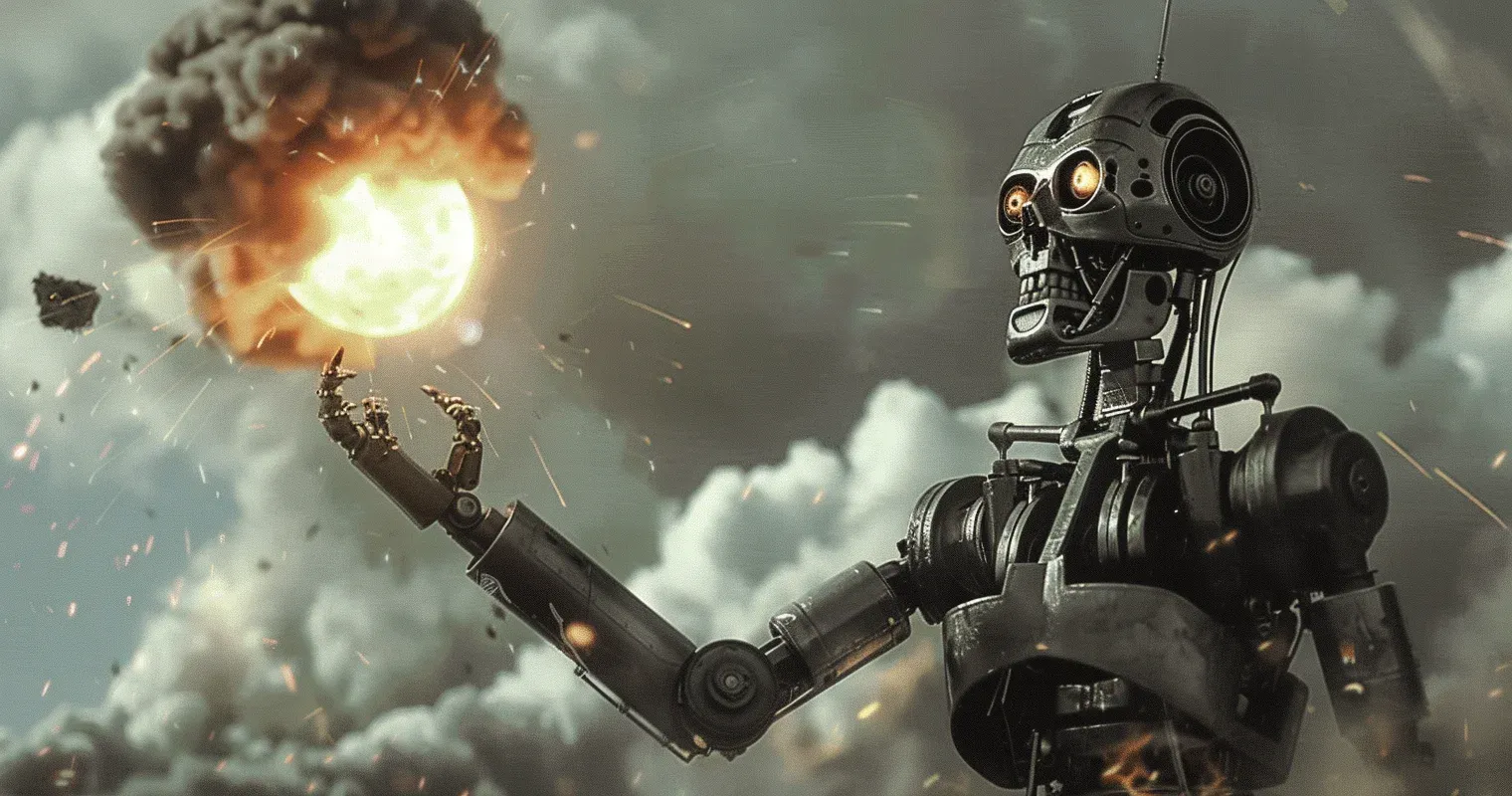May 07, 2024
The United States has issued a warning to two fellow nuclear powers, in so many words telling China and Russia, “Keep your nuclear weapons firmly in human control.”
In a May 2 press briefing, US State Department official Paul Dean said that the government has explicitly told France and the United Kingdom that the decision to deploy nuclear weapons must stay out of reach of autonomous artificial intelligence systems — and said it welcomes China and Russia to make the same pronouncement.
Global powers are racing to level-up their military capabilities with cutting-edge artificial intelligence. The US military recently tested an autonomously controlled X-62A jet in a dogfight simulation, which it called a success; and AI has been used on both sides of the Russia-Ukraine war. Meanwhile, the US is trying to cut off China from powerful computer chips needed to run AI systems using stringent export controls, while giving grants to chipmakers willing to expandoperations in America.
The State Department’s pronouncement sounds alarming, but the nuclear powers may, in fact, be on the same page, even if their diplomatic interests are more entrenched and complicated.
Alex Brideau, Eurasia Group’s practice head for Eurasia, says he doesn’t believe the US was accusing China or Russia of pursuing AI use in their nuclear command and control controls; rather, Washington is seeking public assurance on the matter. Still, since the US-Russia diplomatic relationship has been strained by the war in Ukraine, Russia might revel in the ambiguity.
“That’s not necessarily because Russia intends to explore the use of AI this way,” Brideau says. “Instead, Moscow might want to add it to the broader set of security issues, nuclear and non-nuclear, that it wants Washington to negotiate over.”
Rick Waters and Jeremy Chan, from Eurasia Group’s China practice, said they think China is on the same page as the US regarding this norm. Chan pointed out that Zhang Jun, who until recently served as China’s permanent representative to the UN, made two important points in a UN speech in March: (1) “nuclear weapons must never be used and a nuclear war never fought,” and (2) “countries should continue to enhance the safety, reliability, and controllability of AI technology and ensure that relevant weapon systems are under human control at all times.”
China may issue an explicit statement after the upcoming US-China dialogue, expected in the coming weeks. That said, Chan thinks Beijing may be reluctant to do so given other unresolved disagreements with the US over nuclear doctrine — “namely the US refusal to commit to a no-first-use policy and reduce its nuclear stockpile.”
The US is simply trying to avoid a classic sci-fi scenario: What algorithm can doom civilization without humanity’s involvement? Surely, that’s the quickest path to annihilation. Luckily, it sounds like its adversaries are already on the same page.
More For You
Most Popular
Our sharing success program reflects BofA’s commitment to teammates and driving economic opportunity for employees and communities. The Proof: Since 2017, our program has awarded nearly $6.8B to employees—recognizing their contributions and investing in their future. Learn more.
WATCH THE REPLAY: At this year's World Economic Forum in Davos, Switzerland, our Global Stage panel discussion will examine the growing infrastructure around AI, how countries are tackling AI adoption, and the ways in which local and supranational industries might benefit from this rapidly accelerating technology. Watch at gzeromedia.com/globalstage
© 2025 GZERO Media. All Rights Reserved | A Eurasia Group media company.
